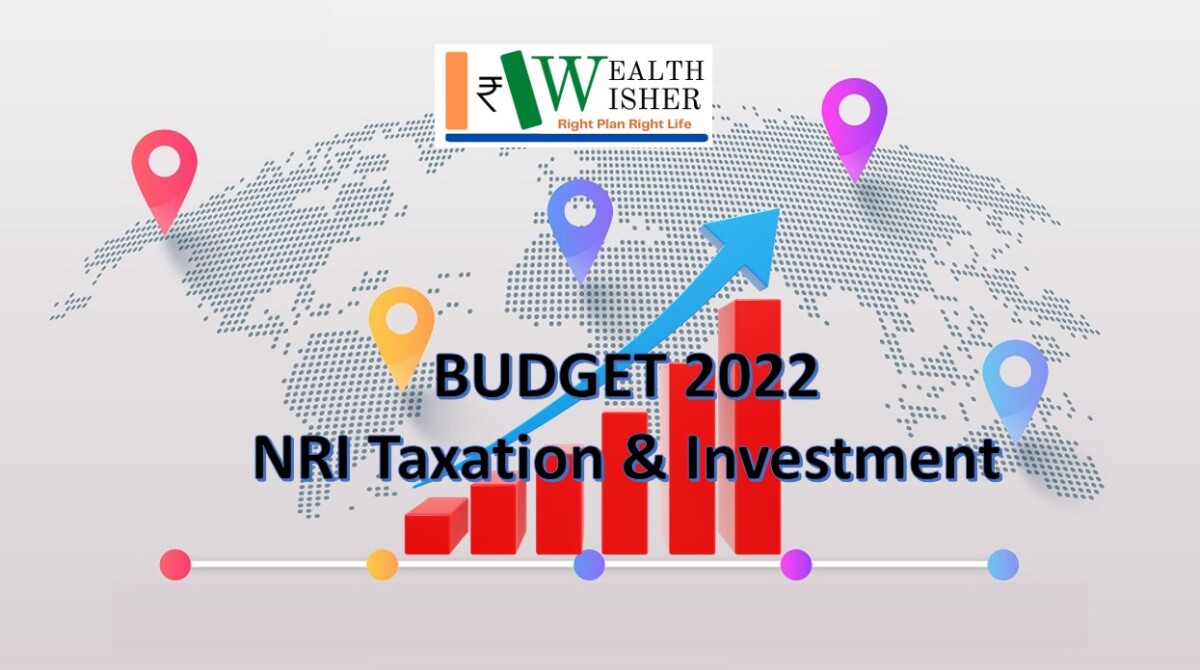The Budget 2022, has been good in terms of the enabler role by the government. NRIs play a very big role in the development of India through their work, taxes & investments. Here are the collection of Budget 2022 Impact on NRI Investments & Taxation.
Here are the changes proposed by Union Budget 2022 for non-resident Indians.
Budget 2022 Impact on NRI Investments & Taxation
E-Passport
Nobody likes to stand in lines now. Our dear passport department will also go 100% online. This is proposed in the budget 2022. We will have to wait for guidelines & details. But good news for NRIs & residents holding Indian Passports.
Relief on foreign Retirement Accounts or Pensions
 When Non-Resident Indians return to India, they have issues with respect to their accrued incomes in their foreign retirement accounts. This is usually due to a mismatch in taxation periods.
When Non-Resident Indians return to India, they have issues with respect to their accrued incomes in their foreign retirement accounts. This is usually due to a mismatch in taxation periods.
They also face difficulties in getting credit for Indian taxes in foreign jurisdictions. It is proposed to notify rules for removing this hardship of double taxation. We will wait for the details on this also.
New Bonds will be issued
The Budget has proposed the issuance of Green Bonds & Zero-Coupon Bonds to fund Infrastructure projects. This is interesting as the announcement collides when Central Markets will face rate rising times.
But it gives a new investment option for investors in the fixed income segment. Let us hope NRIs get a chance to invest n these bonds.
Tax on Crypto Assets
It covers all Cryptocurrencies & NFTs working through Blockchain Technology. Gift of cryptocurrencies to be taxed at receiver’s end.
A flat rate of 30% will be levied on gains arising from selling any virtual digital assets. No long-term or short-term differentiation. This is regardless of your existing tax slab. No Indexation benefits will be provided. Losses or gains cannot be set off with any other losses or gains. No recipient will be excluded from taxation. A 1% TDS will be there? Why just 1%? So that it is captured in the Annual Information Report.
TDS is also applicable only if the aggregate sale consideration is over Rs 10,000 in a year.
Surcharge capped to 15%% on LTCG
At present, long-term capital gains on listed equity shares, equity-oriented mutual fund units etc are subject to a maximum surcharge of 15 percent. Other long term capital gains are subject to surcharge up to a maximum of 37 percent depending on the taxable income of the individual. The Budget proposes to cap the surcharge on all long-term capital gains at 15 percent. This is a small relief to investors with large LTCG.
No more bonus stripping!
Bonus stripping means – we could defer taxes and reduce them by buying bonus shares before the record date. Bonus will increase shares. We can sell original shares for a “notional” loss after. This was allowed for shares, MFs & REITS but has now been removed as per the budget. In MFs this is already difficult as one has to buy 3 months before and hold 9 months from the bonus date.
Dividend stripping extended to REITS InvITs and AIFs
Similar to bonus stripping, dividend stripping as a practice was curbed through Section 94(7) of the Income Tax Act. This section is now being extended to new investment classes like real estate investment trusts and infrastructure investment trusts besides alternative investment funds. In effect, anyone using this as a means to book losses and use them as set off will now be unable to.
Covid Relief Measures
Relief measures were announced via a press statement on 25 June 2021 towards medical treatment expenditure and
compensation received by family members in relation to death of an individual. These measures have now been introduced in the Act with effect from Assessment Year 2020 21 to provide clarity on various aspects.
- All reliefs received from Employers are not to be part of income. No limit.
- Income received from other sources as relief for Covid 19 will be tax-free up to Rs 10 Lakh.
The compensation received only within 12 months from the death of an individual eligible for exemption.
Some Small Proposals Introduced:
- Long Term Capital Gains surcharge – to be capped at 15%. A small concession is given.
- Investments in Post Office Schemes will be made easy by modernizing Post Offices and connecting them online.
- Additional excise duty of Rs 2 per liter on unblended fuel w e f October 1 2022.

I am adding new information constantly. So keep visiting…
For our clients – no change is sometimes a good move.
In a budget for a country coming out of Covid, these moves are only good for the country overall. So, remain invested and continue on your financial goal-linked investments. Stay away from things which are complex, you don’t understand, and too good to be true. Keep clear view of the income tax rebates, exemptions and all capital gains implications. Looking at the overall economic growth projections, stay positive.








